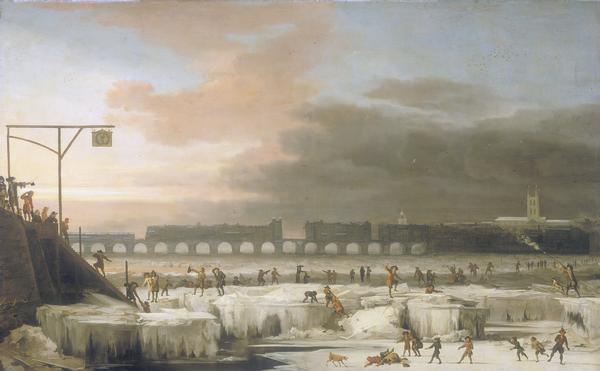31 July, 2015
The Time Machine by HG Wells
1. What an ending! That ending is just perfect. No matter how many times I read this novella, the ending gets my mind turning. Throughout, the story is paced well – the actions do not crowd together, the philosophical and personal introspection doesn't drag slowly on, and the shifts in time back and forth are typically accompanied by the character assessing their situation and setting their scene, which helps the readers do the same. For instance, after that Time Traveler finishes his long story, everything stops for a single paragraph: he lights his pipe, the first person looks around, each of the other characters is placed while the first person gathers his bearings, then the interrogation begins. This also allows the reader to gather his bearings after this fantastic and lengthy monologue. Wells does a good job of these little breaks for the characters and readers, it helps the whole stay legible.
2. Wells's task apes that of the Time Traveler: namely, to relate these scenes and these stories to somebody who has never been there and can never be there. Wells succeeds. I do not think that any other Wells book I have read is so well written. "A man couldn't cover himself in dust by rolling in a paradox, could he?" "This possibility had occurred to me again and again while I was making the machine; but then I had cheerfully accepted it as an unavoidable risk—one of the risks a man has got to take! Now the risk was inevitable, I no longer saw it in the same cheerful light." "Witness that even when mind and strength had gone, gratitude and mutual tenderness still lived on in the heart of man." There are many examples here of writing I'd like to list out, but that would take too much time. His writing expands premises and contracts conclusions, but explores them later through actions and ruminations. He also effectively uses grammar instead of letting it prescribe his prose's pace and structure –dropping words and punctuation as needed to influence the readers' understanding, to reinforce importance, and alter the pace as needed.
3. The book takes industrialism-era capitalism to a logical extreme as a warning against it. The basic tenant is socialistic, but he doesn't awkwardly preach. This is a classic science fiction technique that he does well here. He does not tell it off so much as show some dangers inherent in it. His writing here both shows and tells about other things – and does both well without becoming redundant. But in his anti-capitalism, it's almost all showing. Actions speak louder than words, some say, but here this communicated his point well.
4. This novella is tight and focused. On the day I read it again, I cannot now point to a single part that does not illuminate something central to the book: characters, cultures, situations, or theme. There seems to be no word out of place, distracting, or not helpful and, perhaps, necessary. While I also really enjoy complex narratives and puzzles to piece apart, this simple narrative just steals my heart every time. I like novellas because they are usually focused well: The Old Man and the Sea, The Red Badge of Courage, and this one are three that always come to mind as my favorites. Later fiction dealing with eschatology and time travel has shown, too often this theme can get mired down dully examining the paradoxes implied by the narrative device — the time machine here. But Wells admirably sticks to his story and does not get distracted from making his point. I think this works — not necessarily because it could be called efficient, but because it allows him to delve deeper into what he is interested in. It allows his theme of the dangers of capitalism to be the focus, rather than the time machine itself — which is just the tool to talk about that theme. I enjoy fiction that is a human story, and honestly so, no matter how fantastic the setting or set pieces, because as a human I can relate to these stories in a way that I can't relate to a time machine. Wells focuses on the human aspects of his story very well.
5. The character of the Time Traveler himself is echoed in both the Eloi and Morlocks. The Eloi are his dramatically whimsical side played out to the nines. While the Morlocks are his industrious, engineering side exaggerated. This is an effective tactic for such a short book. Any longer and the obvious comparisons could have easily been overplayed, but in this context it really works. The Time Traveler could become too ambiguous a character without this.
Subscribe to:
Post Comments (Atom)


No comments:
Post a Comment